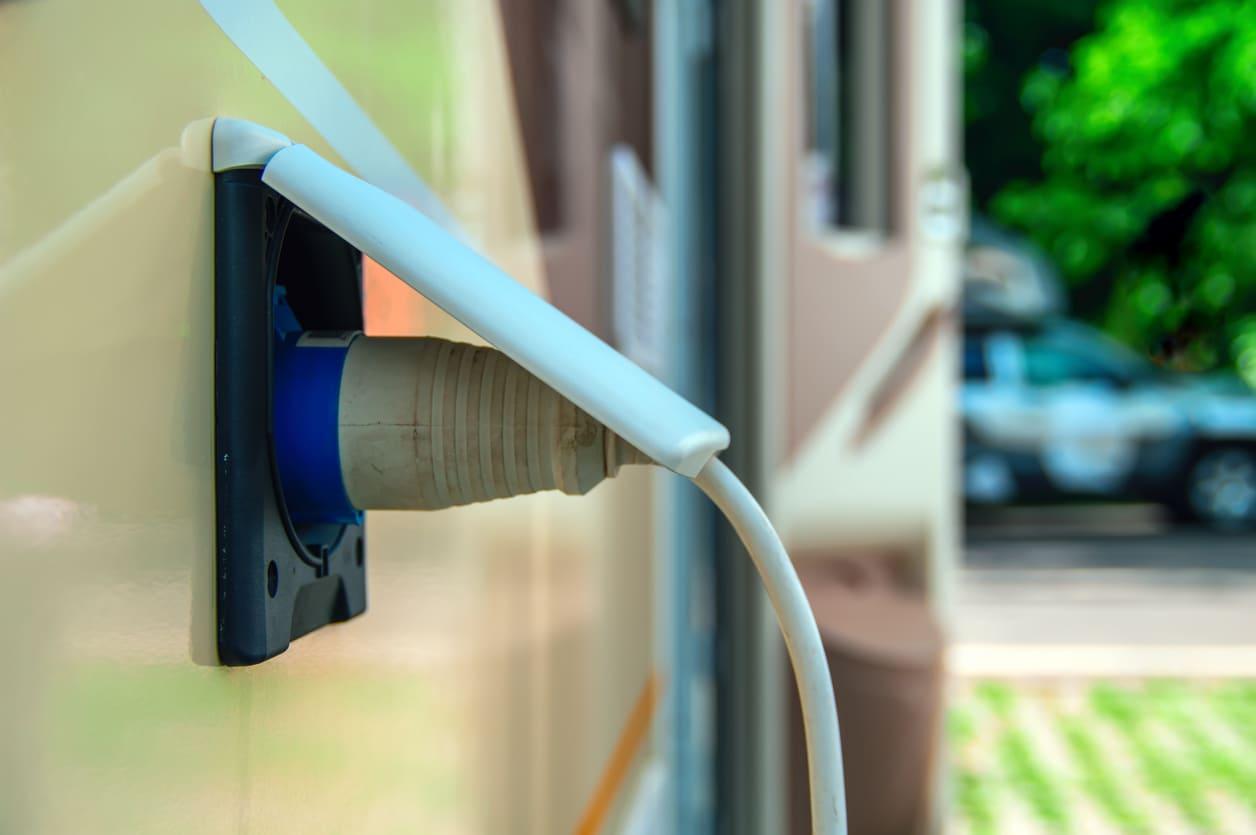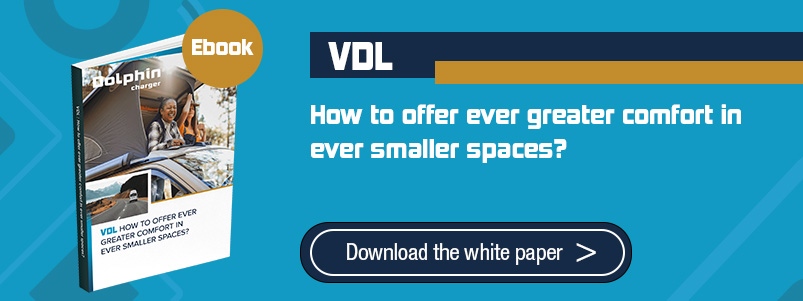Lithium batteries for motorhomes: good or bad idea?

Thanks to their excellent energy performance and enhanced durability, lithium batteries have become increasingly popular with motorhome manufacturers and users in recent years. The downside is that lithium batteries are more expensive than their lead-acid, gel, or AGM counterparts. So, is it good or bad to equip your motorhome with a lithium battery? We take a look.
Lithium batteries for motorhomes: what are the benefits?
Lightweight
Lighter than lead-acid or AGM batteries, lithium batteries help reduce the weight of the energy storage function, freeing up more space for other comfort functions. This saves fuel and enhances the driving experience.
Large capacity
Based on lithium-ion ferric phosphate, lithium batteries offer three times the energy density of lead-acid batteries while maintaining similar dimensions. This characteristic gives them an exceptional power-to-volume ratio, enabling them to deliver high current levels in small spaces. With a higher energy storage capacity than other battery types, lithium batteries can significantly increase onboard energy autonomy without users worrying about running out of power.

Enhanced durability
The life of a battery is linked to the number of charge cycles it can withstand. While a lithium battery can withstand 5,000 cycles, other types rarely achieve more than 250 cycles. Unlike conventional batteries, which can only use 50% of their capacity to avoid compromising recharging, lithium batteries can be discharged to 100%. Designed to last longer than lead-acid batteries, lithium batteries can withstand a greater number of charge and discharge cycles. The result? Users benefit from a longer service life and must replace them less often than other battery types.
Fast charging
With a lithium battery, motorhome users benefit from record-breaking recharge times. Lithium batteries recharge twice as fast as conventional batteries. Equipping your motorhome with lithium batteries means greater comfort and a better experience on board your leisure vehicle!
Read also - Lithium, GEL, or AGM batteries: which type of bettery for which use?
Lithium batteries for motorhomes: what are the drawbacks?
Although the price of lithium batteries is falling year by year, it currently stands at around 1,500 euros. However, this substantial sum must be set against their longevity and ease of use. Regarding recharging cycles alone, a lithium battery must be replaced half as often as another type.
As for the fear of thermal runaway with lithium batteries, this is a rare phenomenon: a battery used in a well-designed system presents no greater risk than other technologies.
Lithium batteries for motorhomes: the role of the battery charger
Over the past two decades, battery technologies have evolved significantly, marking the end of heavy, short-range batteries in favor of lighter, higher-performance batteries such as lithium batteries. To take full advantage of the potential of lithium batteries, industry professionals need to equip themselves with chargers adapted to this new technology. Indeed, battery chargers have also undergone major changes. Bulky chargers with transformers have gradually been replaced by switch-mode or LLC resonance chargers equipped with more intelligent electronic components. These new cross-functional technologies mean that products are more compact and easier to install, even in confined spaces, and make it possible to equip leisure vehicles with more functions.
Read also - Motorhome battery charger: how to choose?
To work with new lithium battery technologies, onboard chargers must be compact, robust, intelligent, and able to operate in even the harshest environments.
Aware of these challenges, Dolphin Charger designs, manufactures, and distributes a complete range of battery charger solutions, with all models featuring a setting making them compatible with lithium batteries. As a specialist in the marine and leisure vehicle markets, Dolphin Charger offers 4 ranges, from 10 to 100A. With an efficiency of 93%, Dolphin Charger products are specially designed to meet all your battery charging and energy conversion needs while adapting to all regulatory, installation, and comfort constraints!



